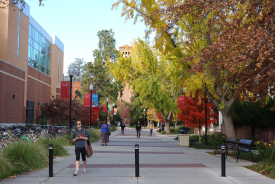Academic learning has been found to decrease the risk of dementia later in life. New research, published in the "PLOS Medicine Journal," has revealed that getting a university education, participating in leadership roles and opting for a healthy lifestyle can keep individuals mentally healthy as they grow older.
Apparently, these factors challenge people's brains and build their "cognitive reserve." This makes people more resilient against the deteriorating effects that may come from age or sickness like dementia or Alzheimer's disease.
According to Study International, Linda Clare, professor of professor of clinical psychology of ageing and dementia at the University of Exeter, said that individuals who engage in brain stimulating activities have higher cognitive reserve by building a buffer in the brain and making it more resilient. This includes doing activities that stretch the brain as well as challenging it to use different strategies that use a variety of networks.
The study was conducted on 2,315 people who are 65 years old and up. They were asked to take part in the first few interviews for the Cognitive Function and Ageing Study Wales (CFAS-Wales).
Aside from those who frequently participated in brain stimulating activities, another group also performed well on the tests. These were the individuals who ate a lot of fruits and vegetables, were physically active and had moderate alcohol consumption.
Study leader Professor Bob Woods, from the Bangor University, said that people who had a healthier lifestyle scored better on mental ability tests. It was found that their level of cognitive reserve was partly accountable for this.
These factors were also found to help in avoiding heart disease at a younger age, as per Newcastle University Professor Fiona Matthews. She was the principal statistician for the study.
The study highlighted the important of policies and measures that encourage the older generation to make beneficial changes in their diets. It is also important for them to exercise more and engage in more socially-oriented and mentally-stimulating activities.
© 2025 University Herald, All rights reserved. Do not reproduce without permission.








